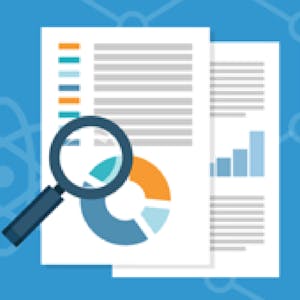Discover the essential tools and skills necessary for a successful career in Data Science with the "Tools for Data Science" course by IBM. This comprehensive course covers a wide range of topics, including popular tools in Data Science, programming languages commonly used by data scientists, and the utilization of Jupyter notebooks, RStudio, Git, GitHub, and Watson Studio.
Throughout the course, you will explore the Data Scientist’s toolkit, which encompasses libraries, packages, data sets, machine learning models, and Big Data tools. You will gain hands-on experience with various tools hosted in the cloud on Skills Network Labs, allowing you to test and run code in Python, R, or Scala. By the end of the course, you will have the opportunity to create a final project using a Jupyter Notebook, demonstrating your proficiency in preparing a notebook, writing Markdown, and sharing your work with peers.
Certificate Available ✔
Get Started / More Info
The "Tools for Data Science" course includes an overview of Data Science tools, essential languages, packages, APIs, datasets, and models, Jupyter Notebooks and JupyterLab, RStudio and GitHub, and an optional module on IBM Watson Studio.
Module 1: Overview of Data Science Tools
This module introduces the various categories of Data Science tools, including open source, commercial, and cloud-based tools. You will also explore the learning goals of the course and engage in practice and graded quizzes to reinforce your understanding of the tools.
Module 2: Languages of Data Science
Delve into the essential programming languages used in Data Science, such as Python, R, and SQL. This module provides an introduction to each language and explores other languages commonly utilized in the field. Engage in practice and graded quizzes to solidify your language skills.
Module 3: Packages, APIs, Datasets, and Models
Discover libraries for Data Science, application programming interfaces (APIs), data sets, and machine learning models. You will also explore additional sources of datasets and gain hands-on experience with the Model Asset eXchange and the Data Asset eXchange. Engage in practice and graded quizzes to reinforce your understanding of these essential components.
Module 4: Jupyter Notebooks and JupyterLab
Gain a comprehensive understanding of Jupyter Notebooks and JupyterLab, including their architecture, kernels, and various environments. Engage in practice and graded quizzes, as well as hands-on labs, to solidify your knowledge and skills in using Jupyter for Data Science.
Module 5: RStudio & GitHub
Explore the use of R and RStudio for Data Science, including data visualization and working with GitHub for source code management. This module provides in-depth coverage of R basics, GitHub repositories, and branching. Engage in practice quizzes and hands-on labs to enhance your proficiency in RStudio and GitHub.
Module 6: Create and Share your Jupyter Notebook
This module encompasses the creation and sharing of a Jupyter Notebook, showcasing your proficiency in preparing a notebook, writing Markdown, and sharing your work with peers.
Module 7: [Optional] IBM Watson Studio
For those interested, this optional module introduces IBM Watson Studio, providing insights into creating a Watson Studio project with Jupyter Notebooks and linking GitHub to Watson Studio. Engage in a practice quiz and assignment using Watson Studio to expand your knowledge of this platform.
Data Visualization & Dashboarding with R is a comprehensive program that equips learners with the skills to create static and interactive data visualizations...
Advanced Data Visualization with R is a comprehensive course that explores advanced data visualization techniques using R, focusing on expanding learners' inventory...
Demand Planning in RStudio: Create Demand Forecast is a 2-hour project-based course for Supply Chain and Operations Analysts, focusing on demand data analysis, forecasting,...
Prepare for rapid growth and expansion by creating a relational database for an online grocery store using MySQL Workbench.